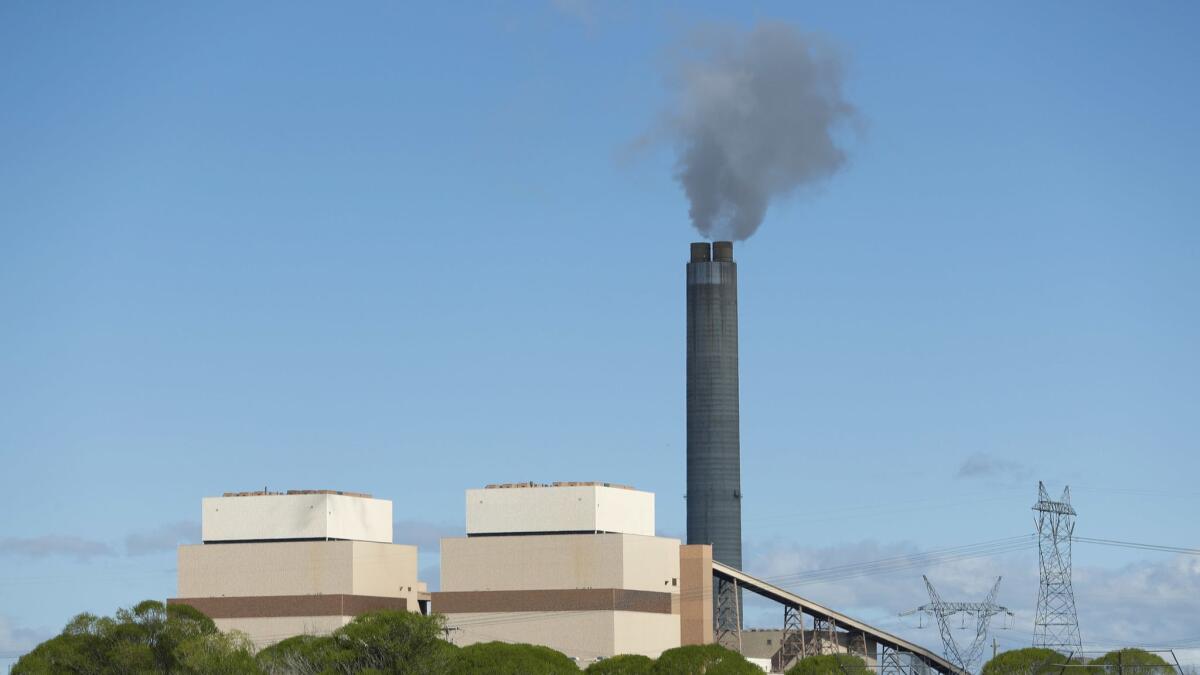Burbank utility to continue negotiations with Intermountain Power Plant

The Burbank City Council decided this week to keep its seat at the table where talks about the future of a coal-fired power plant are taking place.
Council members voted unanimously on Tuesday to have the general manager of Burbank Water and Power submit a compliance filing with the California Energy Commission that would allow the city to participate in discussions regarding the Intermountain Power Plant in Delta, Utah.
Lincoln Bleveans, assistant general manager of power supply for the local utility, said during a town hall meeting on Aug. 6 there is no shortage of power in Burbank, and he told the City Council on Tuesday the main reason to remain in the arrangement is to have access to the Southern Transmission System, the transmission line that currently transports power from the Utah plant into Southern California.
He added that, although natural gas is what some of the cities and agencies want Intermountain to cover in its operations, other types of renewable energy — solar, wind, geothermal or a mixture of those resources — could be available at the site in the future.
“I see it as a renewable [energy] superhighway,” Bleveans said.
While the compliance filing would allow Burbank officials to have a say in what Intermountain becomes, Bleveans emphasized that it is not a commitment to purchase power from the Utah plant.
He said a decision about whether the city should enter into a deal with the updated facility might happen in November 2019.
When asked if the city could just have access to the transmission line, Bleveans said the current deal on the table would require cities and agencies to purchase energy from the power plant in order to use the line.
However, he added that some agencies, including Burbank Water and Power, are trying to negotiate a deal that would allow the city-owned utility to opt out of its contract early but still maintain access to the transmission line.
Bleveans said it’s important the city has access to the transmission line because it’s an existing infrastructure. Constructing new lines would be expensive and time intensive, he added.
The Utah power plant will be ending its coal-powered operations by 2025 and was proposed to be converted into a natural gas-fired facility similar to the Magnolia Power Plant in Burbank with about four times the capacity, Bleveans said.
The original plan for the natural gas-fired plant in Utah was to produce about 1,200 megawatts of energy but was recently scaled down to 840 megawatts, Bleveans said.
The Intermountain plant has been losing many of its customers from California due to California Senate Bill 1368, which bars cities from buying or renewing long-term contracts with energy projects that produce too much pollution.
Besides Burbank Water and Power, other participating utilities in the Intermountain project are in Glendale, Pasadena, Anaheim, Riverside and Los Angeles.
anthonyclark.carpio@latimes.com
Twitter: @acocarpio
